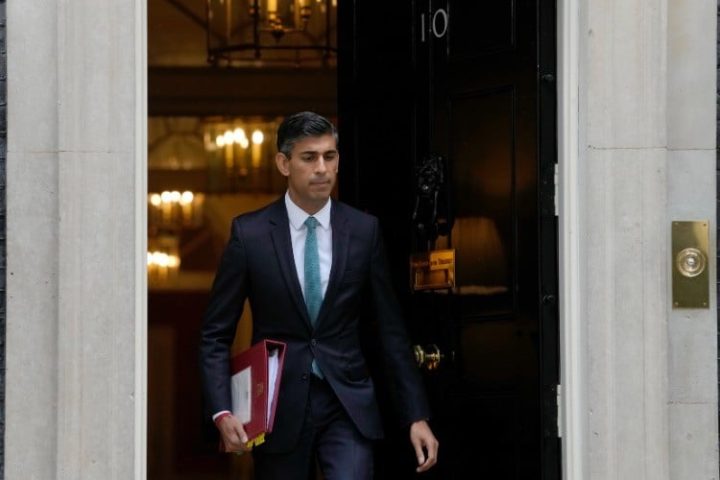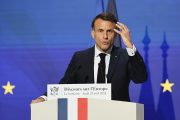
For anyone thinking that new U.K. Prime Minister Rishi Sunak represents a turn to normalism in the midst of the chaos that has been British politics in the past few years, think again. As the U.K.’s former chancellor of the exchequer, Sunak has shown in his commitment to so-called Net Zero policies and his partnership with the World Economic Forum, that his interests are more aligned with Klaus Schwab and other globalists than they are the average citizen of the United Kingdom.
“Our first Goldman Sachs former employee as prime minister,” said Nigel Farage, one of the driving forces behind the Brexit movement. “A globalist if ever I saw one.”
In an address to the COP26 climate summit in Glasgow last year, Sunak pontificated about UN talking points regarding climate change and the “necessity” to act globally on the so-called climate crisis.
“It’s easy to feel daunted by the scale of the challenge that we face,” Sunak said. “By sea levels rising; droughts and wildfires spreading; people forced out of their homes.”
The good news, according to Sunak, is that much of the world is already on board with giving up sovereignty in service of the concocted problem of climate change.
“At least 80% of the global economy has committed to net zero or carbon neutrality targets,” Sunak said. “Our challenge now is to deploy the investment we need to deliver those targets around the world.”
Sunak then outlined his plan to accelerate both public and private financing to address climate change, especially for third world nations, which he insisted were being “devastated by the double tragedies of coronavirus and climate change.”
All of that was unnecessary and expensive enough, but then Sunak laid out the globalist goal.
“So our third action is to rewire the entire global financial system for Net Zero,” Sunak said.
To “rewire the entire global financial system for Net Zero” sounds like a big job. A big, unnecessary job that would only appeal to a micromanaging tyrant.
Sunak once worked as a hedge-fund manager for Goldman Sachs, a multinational investment bank and financial services company. A Guardian article from 2019 described the brand new cabinet member as “very bright,” “polite,” and as not having much of an ego.
Sounds like the perfect person to take orders from an autocrat such as Klaus Schwab.
Sunak is the eldest son of a Hindu family, whose parents had professional careers — his father a physician and his mother a pharmacist. He made his way to Stanford University in the United States, where he met his wife, Akshata Murty, the daughter of Indian billionaire Narayana Murthy, the founder of Infosys, a global IT company with ties to the World Economic Forum (WEF).
The WEF describes Infosys as “a global leader in next-generation digital services and consulting.” Sounds like a useful pet for an organization like the WEF to have.
Sunak’s connections to the WEF don’t end there. As part of the WEF’s Green Horizon Summit, in his role of chancellor of the exchequer for the United Kingdom, Sunak again spouted globalist talking points regarding climate change.
“The challenge of climate change is clear, and it is urgent. We need to ensure a positive and fair transition to net zero and protect our environment,” Sunak said.
“We’re announcing the UK’s intention to mandate climate disclosures by large companies and financial services firms across the economy by 2025,” Sunak promised.
“We’re implementing a new green taxonomy, robustly classifying what we mean by green to help firms and investors better understand the impact of their investments on the environment,” the future prime minister said.
Sunak also proposed to “meet growing investor demand for projects that can achieve environmental and climate goals in the UK.”
So Sunak was preaching ESG (environmental, social, and corporate governance) standards early on.
During the Covid-19 pandemic, Sunak proved he was no conservative, at least in a fiscal sense. It was Sunak, for instance, who championed the Coronavirus Job Retention Scheme, which allowed for the government to cover 80 percent of a furloughed employee’s wages, up to £2,500 per month.
As chancellor of the exchequer, Sunak also promoted other budget-busting measures such as the Coronavirus Bounce Back Loan project and the Coronavirus Business Interruption Loan Scheme.
So, the question must be asked — was Rishi Sunak truly selected by the U.K.’s Conservative Party, or was he specifically chosen by other parties, such as the World Economic Forum, to be a rubber stamp for globalist initiatives?




